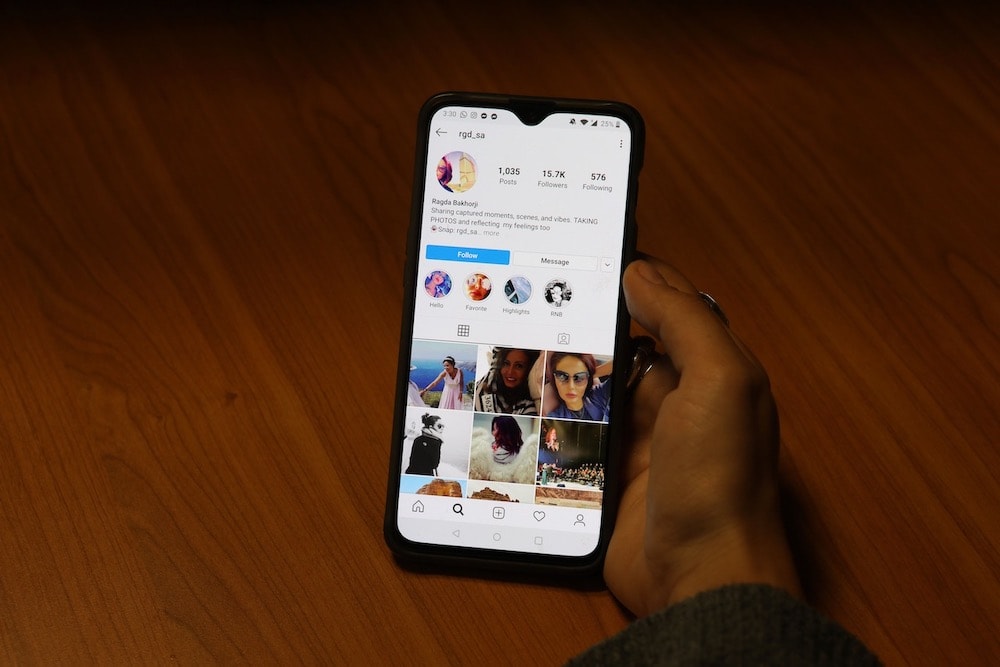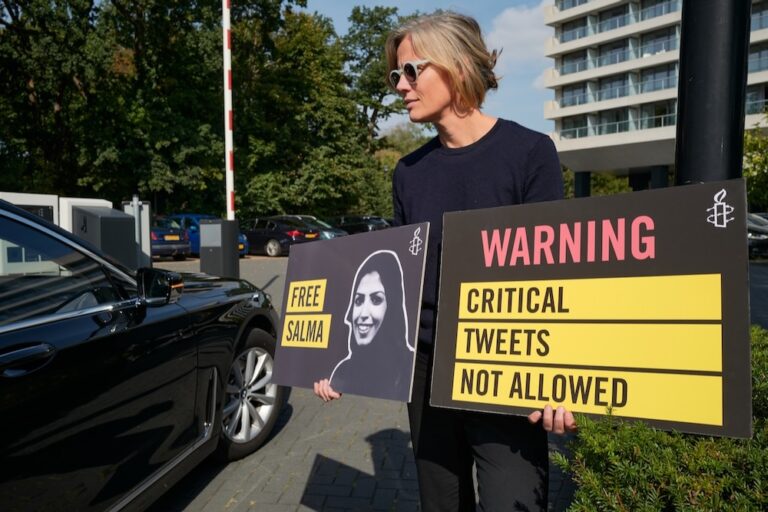Mandatory license for income-generating content creators may have other hidden objectives, including diversifying the Saudi economy or controlling online speech.
This statement was originally published on smex.org on 5 December 2022.
As of October 2022, no influencer is able to work in Saudi Arabia without a permit from the government. Every content creator who earns any revenue through advertising, must now apply for an official license from the General Commission for Audiovisual Media (GCAM). Although the new program known as “Mawthooq” – meaning “trustworthy” or “verified” – regulates the commercial activity of influencers, it may have other hidden objectives, such as diversifying the Saudi economy or controlling online speech.
The new official permission entered into force in early October and costs about USD 4,000 (SAR 15,000) for three years of use. According to the new guidelines published by GCAM, only those influencers whose online activity is considered a source of income will need the license. For example, a user who promotes non-commercial images or clothing on his/her personal account will not need a license, but a YouTube channel that reviews a service or a product, such as a restaurant or a cafe – even if without a charge – will need to register for a license.
The license is mandatory for every content creator over the age of 18 who uses Twitter, Instagram, Youtube, Tik Tok, Snapchat or Facebook, and applies to all types of advertisements (images, videos, audio or text). Any business posting without license could be punished with fines up to SAR 5 million and a prison sentence of a maximum of five years. If they are foreign, they will be deported from KSA.
Once the permit is obtained, the user will be able to promote any product and work with any entity for three years. The only condition is that they do not violate the kingdom’s laws and values by promoting content that could harm national security, offend public morality or damage the reputation of Saudi Arabia.
Regulating a new market
Influencers in Saudi Arabia saw in the permit a measure to regulate an unregulated market, not necessarily perceiving it as a threat to their rights or freedoms.
“Honestly, it’s not that bad. This new act might create a barrier for freedom of speech because it shows that the government is supervising your actions, but those restrictions will later protect influencers and will achieve a transparent conversation with their companies,” Tatiana Tabet Halal told SMEX.
Born in Beirut and now based in Riyadh, Tatiana, known on Instagram as @tatianatabet or @tbeaute.official, is one of many influencers working in KSA. “Here citizens are very active on social media, especially TikTok and Instagram, which leaves room for fraud and violations. Someone without a license can sell whatever product and ask you to transfer money to their account and then disappear,” she warned.
As Tatiana pointed out, the official reason for applying this new license is to control an unregulated market. According to Article 5 of the Saudi Labor Law, publishing ads on social media without a license is considered a crime since it is a way of earning an undeclared income. But are there other reasons behind the new license?
Another source of income for the Kingdom
There is a clear economic interest in this measure. The reach of influencers and the growing online consumption of their promoted content has increased massively over the years. The kingdom saw in this flourishing business an opportunity to create more revenue and complement their dependence on the oil industry.
“I think the government is simply trying to make more money off of the people,” stated Bethany Alhaidari, Senior Fellow for the Human Rights Foundation and the Saudi Case Manager for the Freedom Initiative. “I see this as a simple money grab as the Saudi government has long been trying to branch out on ways to make money outside of oil.”
The Gulf Center for Human Rights also reiterated that this new license can act as further income to contribute to the transition of the Saudi economy away from the dependence on oil revenue.
The Saudi government had been placing more and more restraints on online, undeclared marketing before finally deciding to implement this new license. In June 2022, non-Saudi residents and visitors who promoted products or attended events in Saudi Arabia also had to register for a similar permit. This decision, according to the Kingdom, was taken to avoid “violations on social media platforms,” including lack of commercial registrations and legal licenses.
In this context, a Lebanese citizen with more than 13 million followers on social media was banned from online advertising and was fined SAR 400,000 for publishing content on Snapchat that violated the “anti-smoking laws” of the country. Note that Saudi Arabia is not the first Gulf country to ask for an influencer’s license: the UAE – another Gulf country that also depends on hydrocarbons – issues a similar permit that costs USD 4,000 per year.
A threat to freedom of expression
“One clear message implied in this license is that no one will be spared close scrutiny by the authorities,” warned the Gulf Centre for Human Rights. “It has been a long-standing statement that human rights defenders, and women HRDs in particular, are the most vulnerable targets. Now with the license, anyone can be under the radar, even those with no clearly labeled human rights related content or messages,” they added. The link between this license and the Kingdom’s willingness to control or limit online speech is clear, especially considering the context of freedoms in Saudi Arabia.
According to Freedom House, Saudi Arabia is considered a “not free” country, with an Internet Freedom Score of 24/100, which gets even worse on the Global Freedom Score (7/100). As Global Media Insight points out, 82% of the Saudi population used social media in their daily lives in 2022, spending an average of three hours and 24 minutes per day. Moreover, 32.6% of users utilize social media to find products and 28.6% for keeping up with celebrities and influencers. The new license would have an impact on more than half of Saudi users’ daily activities on the net.
“Saudi Arabia has the means to dominate online spaces using bots, dedicated campaigns to discredit and attack human rights defenders, and target, intimidate and unlawfully prosecute defenders,” according to the Gulf Centre for Human Rights. The GCHR clarified that the license will not be a direct tool of censorship, but of intimidation: “Basically, the license is a measure which signals to individuals that they ought to be extra vigilant to self-censor in fear of violating speech laws, norms, etc.”
An uncertain scenario that requires further vigilance
The boom in the use of new technologies and the birth of new professions and ways of earning money via social media require new regulations. However, these can also be used as tools to hide less ethical purposes. In countries where human freedoms are not guaranteed, the threat becomes greater.
“This new license is yet another way the Saudi government, and GCC governments in general, tries to control the online civic space. It is also another pressure mechanism that leads to self-censorship in this region. Given their very poor human rights track record, this needs to be monitored very closely,” concludes Marianne Rahme, legal researcher in digital law and the Head of the Legal Unit at SMEX.
We are watching closely for any potential violations to the rights and freedoms of influencers in KSA.



